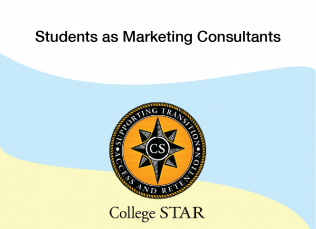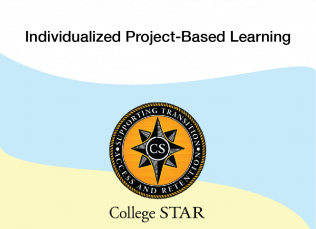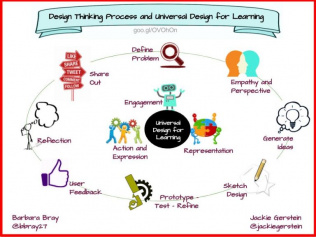
Students as Marketing Consultants
This case offers an example of how an introductory marketing classroom shifts when structured around a semester-long, live-case-study project in which students are challenged to immerse themselves in the learning experience by developing marketing plans for small, local businesses. Through the development of marketing plans, students learn skills critical for success in the marketing profession, as well as professional communication, problem-solving, and critical thinking skills.
This resource was originally developed with resources from the College STAR grant. That grant has ended and the College STAR modules will now permanently reside at the East Carolina University Office for Faculty Excellence.
Module Introduction
Introductory marketing courses run the risk of focusing too much on terminology and too little on developing the conceptual and practical skills needed to prepare students for more advanced study in marketing. This case offers an example of how an introductory marketing classroom shifts when structured around a semester-long, live-case-study project. In this project, students are challenged to immerse themselves in the learning experience by developing marketing plans for small, local businesses.
Through the development of marketing plans, students learn the following skills critical for success in the marketing profession: assessing marketing goals and current marketing strategies; gathering, analyzing, and presenting relevant marketing information from a variety of secondary sources; and developing marketing objectives, strategies, and activities based on business goals and environmental realities. Students also practice professional communication, problem-solving, and critical thinking skills through their interactions with their clients and exercise their writing and presentation skills while completing, for most, their first professional deliverable, a marketing plan.
Support for this Module
Original development of this module was made possible by the College STAR (Supporting Transition Access and Retention) initiative. College STAR was a grant-funded project focused on partnering postsecondary educational professionals and students to learn ways for helping postsecondary campuses become more welcoming of students with learning and attention differences. Much of this work was made possible by generous funding from the Oak Foundation.
Organization/Publishers:
Share this resource:
Posted date:
November 11, 2022


